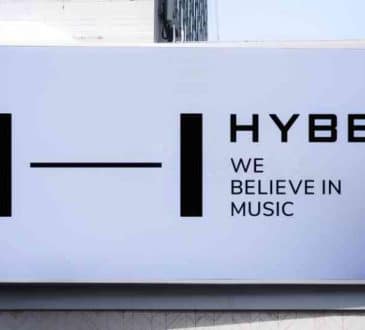GEN Z EMPLOYEES HAVE GOTTEN A BAD REPUTATION: IN MY OPINION IT’S NOT DESERVED

Many executives complain that their efforts to hire Gen Z employees have generally ended in disaster. Some have declared that they had to fire Gen Z workers who had been on the job for less than a month. These so-called leaders have a long list of complaints about Gen Z workers, including:
+ they do not want to come into the office
+ they show up to work but expect to be spoon-fed their responsibilities
+ they resist engaging in training programs
+they are hyper-sensitive and easily offended
+ they get annoyed rather than apologetic when caught doing personal business while on the clock
+ they don’t know how to or even want to make phone calls.
From this flawed perspective, Gen Zers believe that, if they have to work, all tasks should be doable without the irritation of actual human-to-human interaction. It appears that they are quick to leave if they are offered a little more money elsewhere. And, on top of all of this, they supposedly want to make a fortune quickly and retire at 35.
My experience, as president of a top-rated wealth management company, has been just the opposite of the naysayers. In fact, I enjoy hiring and working with young, recent college graduates. Let’s face it. How are we going to keep our businesses going if we are not willing to hire and work with the current generation of young workers?
I suggest that those of us in leadership need to examine ourselves and our companies to see if perhaps the new generation is responding appropriately to draconian tactics that we ourselves did not appreciate enduring when we were coming up in the professional world. “That’s how I had to do it,” is not a valid reason to avoid making meaningful adjustments to your company’s culture to encourage all teammates to give their best.
I don’t mean making superficial adjustments such as allowing employees to “phone it in” from home. Instead, it’s worthwhile to rethink and recommit to company principles so that we can express them clearly in mission statements which teammates can be proud of. By leaving behind the meaningless boilerplate platitudes, leaders can inspire young professionals to truly commit to great performance in a career that they care about.
One of the advantages of hiring young people is that you get to train them from scratch. They haven’t already acquired the bad habits that you want to avoid in your industry. My own team sets itself apart by focusing on the typical weaknesses associated with financial advisory firms: we make sure we overdeliver in those areas. That’s a lot easier to do when your team hasn’t already been indoctrinated with the usual industry flaws.
Our company is modeled entirely on honesty and transparency and rigorous personal service to our clients. What we say we are going to do when we meet a new client is exactly what we proceed to do. I find that young college grads like and respect our program because they appreciate authenticity. If there is no wiggle room between your stated principles and your day-to-day performance, then you’re giving young professionals something they can believe in, as opposed to something that is mostly a façade.
Gen Zers can see through the hype. Leaders who say one thing but do another are going to find them jumping ship for a small pay raise. They want to know where they stand in their career so that it’s clear what is expected of them. They want to know how they can progress in their career so that they feel empowered instead of chained to the rat race. Lastly, they want to know what will happen if they drop the ball. What’s an offense that results in docked pay or termination? Great leaders will make these rules clear and enforce them without any politics or favoritism.
Gen Zers are attracted to an even playing field. They know it’s not appropriate to have one set of rules for the Harvard grads and another set for the people with degrees from the local state university. They want opportunity offered equally to everyone and promotion based on merit and performance. That is a lot different than offering more perks to the individual who runs fastest to get the boss’s coffee. And, speaking of bosses, Gen Z employees want to see the boss working as hard as everyone else and maintaining a genuine “open door” policy, not just paying lip service to that ideal.
Gen Zers, like everyone in the office, deserve and expect basic respect. They want to be treated with courtesy and listened to when they have a new idea or have spotted a problem. I really enjoy a healthy exchange of thoughts with my youngest, newest employees, and I believe I have frequently benefitted—and the company has benefitted—from listening to their fresh perspectives.
This does not mean that I would be happy to have Gen Zers work from home or do sloppy work when they don’t feel like toeing the line. Frankly, I have not encountered that behavior with the Gen Zers I have hired. I make our expectations clear from the beginning and do not deviate from those expectations, and I find that my youngest employees, like their colleagues, are motivated to do their best.
Approaching business in this fashion means our business model encourages loyalty from employees of all ages, including Gen Z. They are not eager to leave just because another job offers a little more money. They see purpose and meaningful challenge in their current role. I treasure that loyalty and strive to deserve it every day.
I am reminded of a quote based on the words of Antoine de Saint Exupéry: “If you want to build a ship, don’t drum up the workers to weave canvas, forge nails or read the sky. Teach them to yearn for the vast and endless sea.”
Add CEOWORLD magazine to your Google News feed.
Follow CEOWORLD magazine headlines on: Google News, LinkedIn, Twitter, and Facebook.
Copyright 2024 The CEOWORLD magazine. All rights reserved. This material (and any extract from it) must not be copied, redistributed or placed on any website, without CEOWORLD magazine' prior written consent. For media queries, please contact: info@ceoworld.biz








